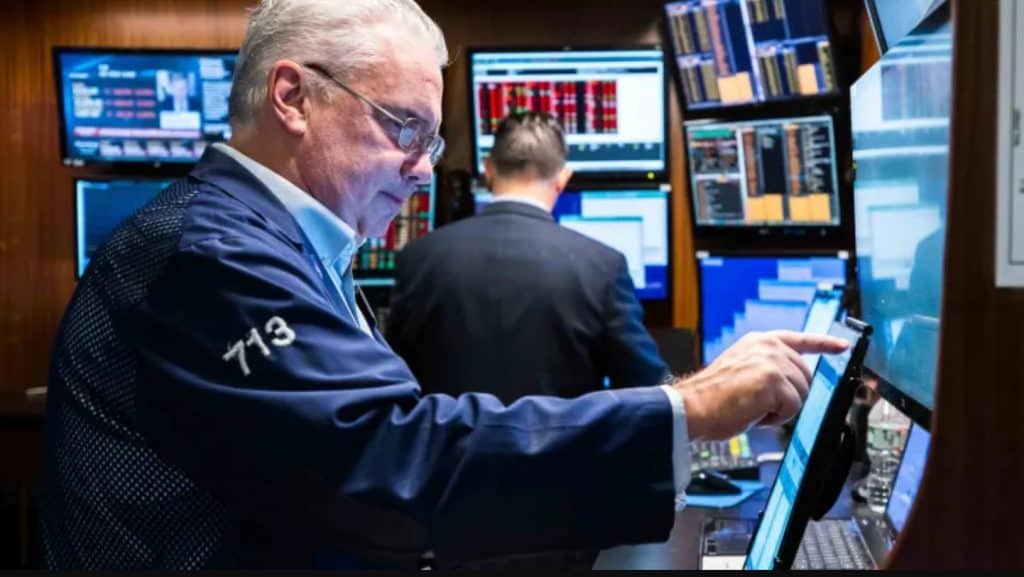
Here are the most important news items that investors need to start their trading day:
1. Picking up the pieces
U.S. equities futures looked set for a mixed session Wednesday morning as investors sought to shake off the worst market rout since June 2020. All three major indices had a lousy Tuesday after the consumer price index came in hotter than expected. While the Dow fell an eye-popping 1,276 points, the S&P 500 and the tech-heavy Nasdaq suffered bigger drops percentage-wise as it sunk in across Wall Street that the Fed won’t back off its aggressive rate-hike plans any time soon. In fact, traders are now divided over whether the Fed will hike its benchmark rate by three-quarters of a point or one full point at next week’s meeting. Investors have more inflation data to chew over, too. The producer price index slipped slightly in August, matching expectations.
2. Trouble on the railroads
Thousands of rail workers could go on strike Friday as negotiations between a couple major unions and rail carriers are at an impasse over sick leave policies. The top union negotiator accused Union Pacific and Berkshire Hathaway-owned BNSF of holding things up over time off for medical appointments. BNSF called that untrue, while Union Pacific adopted a somewhat softer tone. “We are in active discussions with the unions to try to address these concerns,” the company told CNBC. The White House, meanwhile, has begun preparing for a work stoppage. A strike could end up costing $2 billion per day. “Strikes are a last resort. It does not help anyone because the employees lose money, and the companies lose money,” Dennis Pierce, president of the Brotherhood of Locomotive Engineers and Trainmen, told CNBC. “We’re not here to hurt the economy.”
3. Starbucks’ new plan
Howard Schultz is on his way out as Starbucks CEO, again, but his vision for the company he turned into a global coffee juggernaut still reigns supreme. At its investor day Tuesday, Starbucks revealed its new long-term plans, which include everything from beefing up its loyalty programs, more stores and increased automation in its cafes – as the company battles a growing union push among its baristas. Starbucks also boosted its long-term financial outlook. Schultz will stay on as interim CEO until April, when veteran consumer-goods executive Laxman Narasimhan is slated to take over the role. Narasimhan will officially join the company this fall and learn the ropes from Schultz.
4. What’s next for Ukraine?
Now that Ukraine’s military has reclaimed thousands of miles of Russian-occupied territory, President Volodomyr Zelenskyy said his government is working to stabilize several regions and root out lingering Russian saboteurs and agents. There’s also the question of whether Ukraine’s shocking and successful counteroffensive against Russian President Vladimir Putin’s forces constitutes a turning point in the war. U.S. President Joe Biden said it might be too soon to tell, and that he thinks “it’s going to be a long haul.” Elsewhere, German Chancellor Olaf Scholz, during a 90-minute phone call, urged Putin to end the war. Read live updates here.
5. Mortgage demand sinks
The housing market continues to feel the pressure from rising rates. Overall demand for mortgages declined over 1% week to week, according to the Mortgage Bankers Association. Since last year, though, the dropoff is more significant. Demand for mortgages from homebuyers fell by nearly a third. Refinance demand has fallen more than 80%, as well. Rates were effectively rock bottom this time last year, but now they’re over 6%, about double what they were at the start of 2022. And after Tuesday’s surprisingly hot inflation print, the Fed will only likely be more emboldened to keep raising rates at an aggressive clip.
— CNBC’s Samantha Subin, Lori Ann LaRocco, Emma Kinery, Holly Ellyatt and Diana Olick contributed to this report.